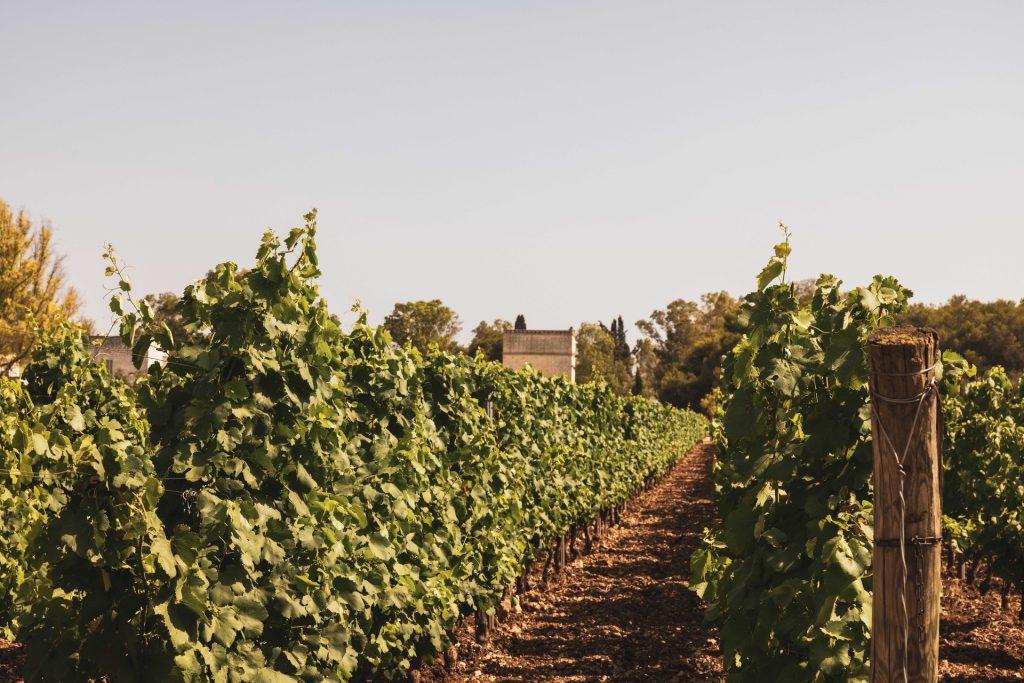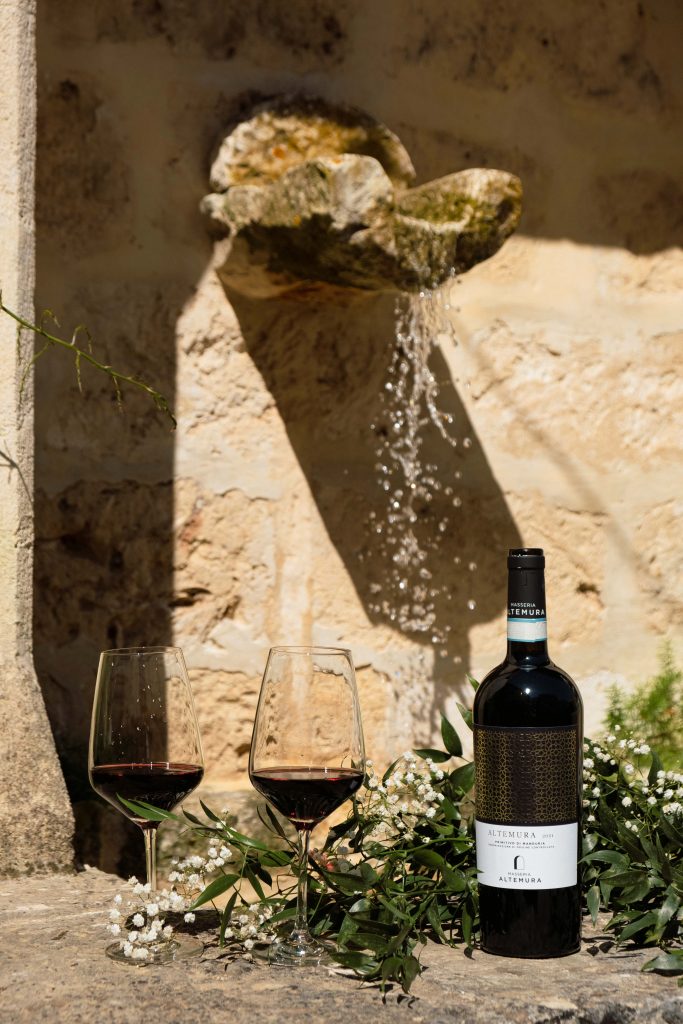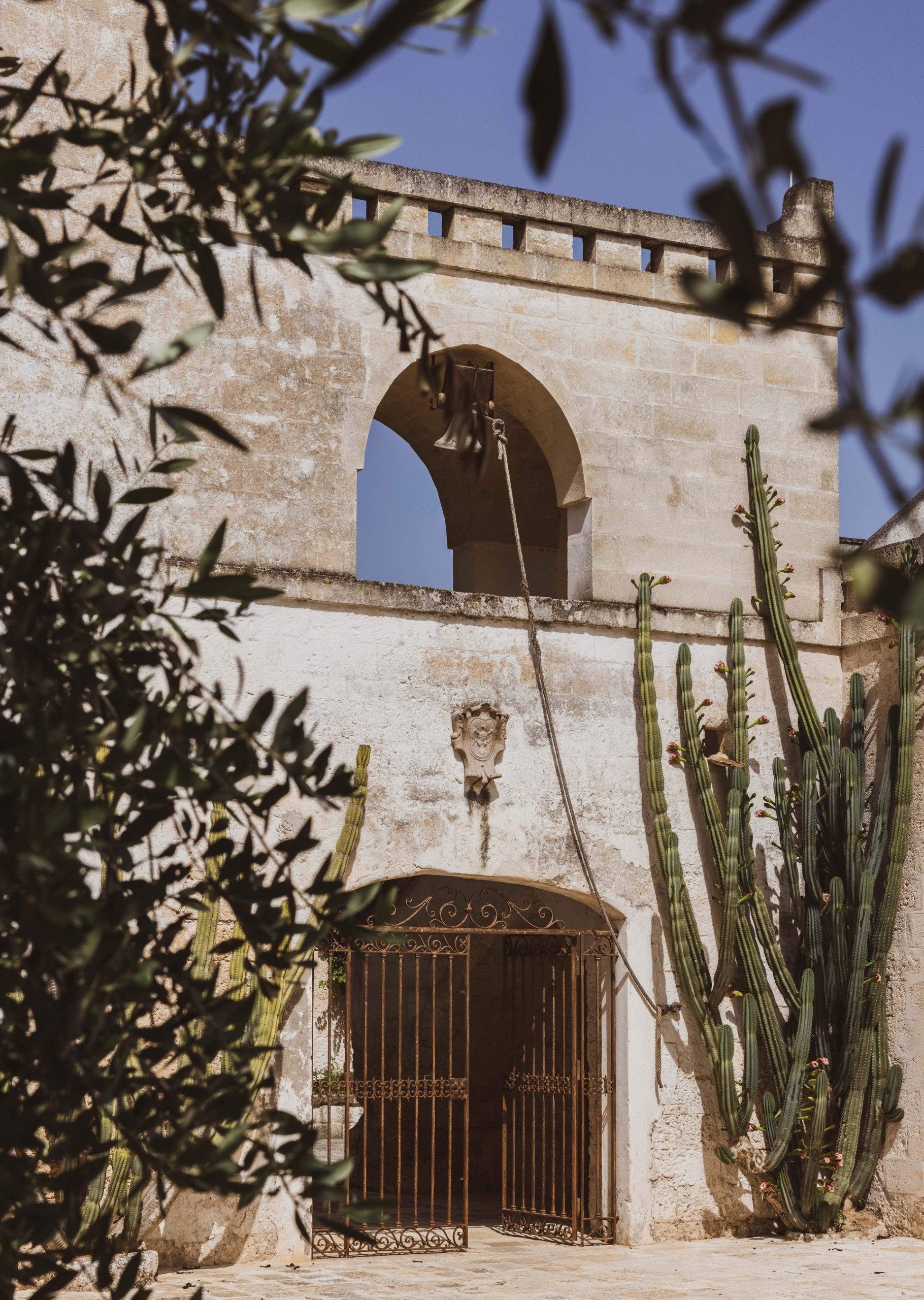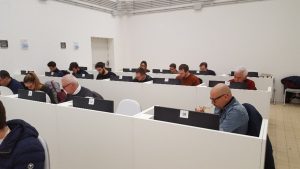Masseria Altemura: where terroir and innovation meet to create resilient viticulture
The Masseria Altemura estate
Nestled in the heart of Puglia, in the south of Italy, Masseria Altemura lies halfway between two seas, enjoying cool sea breezes from the Ionian and saline air the Adriatic.
The estate, acquired by the Zonin1821 group in 2000, covers 140 hectares of vineyards set in a unique terroir. The soils, a blend of rock and clay, paired with a Mediterranean climate—hot, dry summers and mild winters—create the perfect environment for high-quality viticulture. The estate hosts a variety of prestigious grape varieties, including local gems like Aglianico and Primitivo.
Since 2005, the estate has been under the watchful eye of Antonio Cavallo, the vineyard manager and winemaker. A native of Puglia with a degree in Agricultural Sciences from Bologna, Antonio brings a no-nonsense mix of traditional know-how and scientific curiosity to his work. “My goal,” he says, “has always been to let the native varieties speak for themselves—while giving them the right tools to do it.” explains Antonio “It’s about taking everything into account: from the climate and soil to the style of wine —every detail guides our decisions in the vineyard.”
Antonio gives us a picture of the estate vineyards: “Around 70% of the vineyards are planted with reds, with Primitivo making up about half of our production. We also grow Aglianico and Malvasia Nera. For white grapes, we have Malvasia, Fiano, Moscato, and Falanghina.” Yields vary depending on the variety: “For Primitivo, we are around 70-80 quintals per hectare, while for Fiano and the rosé production, yields are a bit higher, around 110.”
“My goal, has always been to let the native varieties speak for themselves—while giving them the right tools to do it “.

A changing climate
Like many growers across southern Europe, Antonio has watched the local weather patterns slip out of sync. “Rain is coming at the wrong times, and it’s not just a few days—it’s entire seasons that look nothing like they used to,” he says. Take spring 2023, for example: humid, wet, and unpredictable, it ushered in one of the worst downy mildew seasons in recent memory of the region, which is not usually exposed to high disease pressures. “But luckily we were not affected” Antonio says “We were prepared. We acted fast, monitored closely, and protected the fruit.”
Warmer winters are also accelerating vine growth. “This year Moscato budded in early March,” he says “and within two weeks we were at two leaves. This precocity makes vines vulnerable to spring frost damage—a risk that used to be rare here.”
« This (phenological) precocity makes vines vulnerable to spring frost damage—a risk that used to be rare here. »
An irrigation strategy tailored to each variety
According to Antonio, the key to resilience is precision. Masseria Altemura uses a drip system which is triggered only when vines are exposed to real water stress—what is called ‘rescue irrigation.’ It’s a system designed for a region where the dry, hot summers can quickly turn punishing. “The idea isn’t to irrigate routinely,” he explains, “but to act when the vines actually need it—and in a way that fits the character of each variety.”
The Mediterranean climate—with its long, dry, and sun-soaked summers—offers both a challenge and an opportunity for viticulture. In the ripening season, when rainfall is scarce, irrigation becomes not just a support, but a strategic tool. “At that point, the vines rely almost entirely on us,” says Antonio. “And that means we can adjust irrigation to obtain a certain wine style.”
At Masseria Altemura, irrigation isn’t about simply quenching thirst—it’s a fine-tuned balancing act. Strategies are tailored to each grape variety, guided by the wine style they aim to achieve and informed by weather patterns and lessons from previous harvests. “If one year we ended up with overly tannic musts or yields that were too low, the following season we make adjustments to ease a bit more the water stress,” Antonio explains.
Precise water management is essential—not only to maintain the vine’s vegetative balance, but to shape wine style itself. “Every variety reacts differently to water, to stress, to the rhythm of the season” Antonio emphasizes. “Understanding the water behavior of each variety is key to striking the right balance between vigor and ripening, and create good wines”.
Over time, they’ve built detailed irrigation profiles for each grape. For example, white varieties are protected from excessive water stress to preserve their freshness and minerality. “For reds, we can stress a bit more, but it depends,” he says. “Negroamaro, for example, has very little resilience to drought—once it’s stressed, it hardly recovers. So, we make sure it never crosses that stress threshold. Primitivo, on the other hand, has delicate skins, so we pay very close attention not to water in excess in the last two weeks before harvest, to avoid berry splitting.”
“Everything comes back to knowing how each variety behaves under pressure,” Antonio adds. “That knowledge is what lets us guide the vine—and the wine—in the right direction.”
« Understanding the water behavior of each variety is key to striking the right balance between vigor and ripening, and create good wines. »

From manual to digital
Such precision might seem difficult to achieve, but for years, the estate has been fine-tuning its water management practices with monitoring tools like the pressure chamber. This device measures leaf water potential—the pressure needed to draw water from a leaf—providing a direct indicator of the vine’s hydration status. Unlike soil moisture sensors, this method offers a plant-centered perspective, especially valuable in viticulture. Yet, it’s a technique that demands experience and manual effort, requiring daily dedication to maintain consistent monitoring.
“When I first arrived in 2005,” Antonio recalls, “given the size of the estate, measuring leaf water potential throughout the summer meant having one person working full-time for three straight months.”
That’s why, since 2018, the estate has adopted Vintel®, a decision support system for precision irrigation. Vintel® offers daily simulations and forecasts of leaf water potential, making vineyard monitoring more accessible and strategic. From the beginning, it proved to be an ideal partner for Masseria Altemura’s approach. The platform is powered by multifactorial agronomic models that consider soil, climate, grape variety, and winemaking objectives, tailoring its recommendations accordingly.
Thanks to this integration, the estate now benefits from highly accurate water stress forecasts, drastically reducing the need for manual measurements. The result is a streamlined, time-efficient process that doesn’t compromise on quality.
“Today, thanks to Vintel®, we can simulate and forecast leaf water potential with precision,” Antonio explains. “We only use the pressure chamber to confirm the data. It lets us work more efficiently—and with greater peace of mind.”

« Today, thanks to Vintel®, we can simulate and forecast leaf water potential with precision [..] . It lets us work more efficiently—and with greater peace of mind. »
Innovation, Sustainability, and Terroir
Masseria Altemura stands as a prime example of how thoughtful agronomic management and innovation can meet today’s viticultural challenges—enhancing the potential of a unique terroir while ensuring sustainability and resilience.
That path, however, hasn’t always been smooth. “In the beginning, there was a lot of trial and error,” Antonio admits. “It took time and effort to calibrate the DSS, to define irrigation strategies and the water response profiles of each variety.”
And each year, the challenge begins anew. As climate patterns shift and conditions evolve, strategies must be constantly reassessed. What worked one year may no longer apply the next. But at Masseria Altemura, years of field experience, combined with a data-driven approach, have shaped a resilient and adaptable system—one that not only navigates uncertainty but showcases the full potential of Apulian viticulture.
Today, thanks to Vintel®’s predictive power, Antonio can finally step away from the vines for a few days, even during the peak of summer. A short break, perhaps, but one that was once unthinkable.
Contact us now and ask for a demo!




